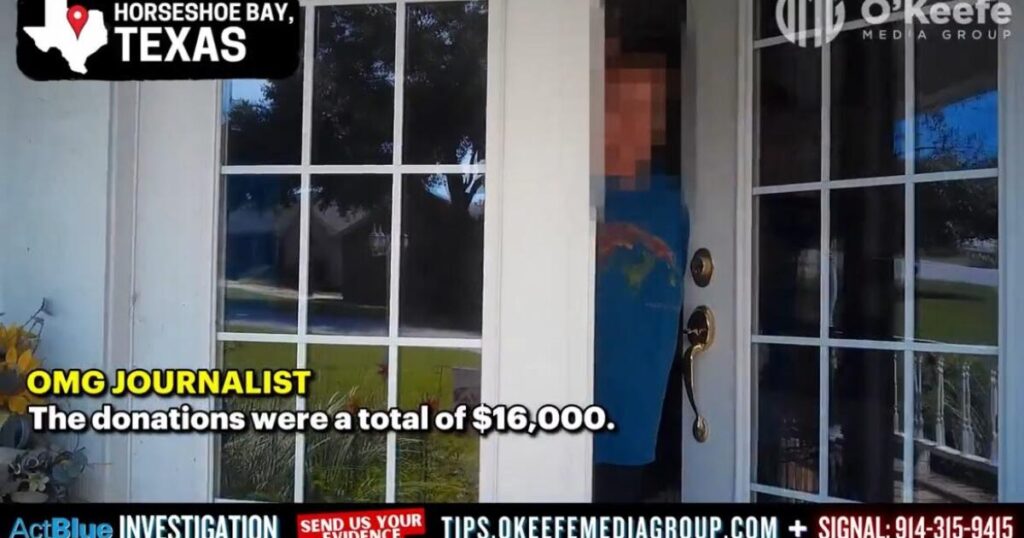On December 5, 2024, Elon Musk and Vivek Ramaswamy met with lawmakers on Capitol Hill in response to significant findings from a House of Representatives investigation concerning potential ActBlue campaign finance fraud involving foreign money. Musk vehemently characterized these alleged practices as “extremely illegal,” echoing the serious concerns raised about deceptive donation practices through ActBlue, a platform utilized primarily by Democratic fundraising efforts. According to reports from various outlets including The Gateway Pundit, fraudulent contributions to ActBlue, colloquially known as “smurfing,” often involve identity theft, particularly targeting senior citizens whose personal information is misappropriated to direct large sums of money into political causes without their consent.
Investigations have suggested that a substantial amount of these ill-gotten funds may be traced back to foreign sources. Allegations have surfaced claiming that funds destined for U.S. political campaigns are being laundered through channels in Ukraine. Former Polish Minister Piotr Kulpa publicly stated that as much as half of the U.S. financial aid sent to Ukraine has been misappropriated and subsequently funneled back to U.S. Democrats. This raises ethical concerns not only about the source of campaign contributions but also about the overall integrity of U.S. elections. Notable political figures linked to these claims include high-profile Democrats such as Fani Willis, Alvin Bragg, and Senators Tammy Baldwin and Raphael Warnock.
The scope of the investigation has expanded with new developments. A Wisconsin judge approved a subpoena for documents related to an October lawsuit that alleged nearly 400 instances of identity theft wherein fraudulent donations were made through ActBlue. This reveals a troubling pattern of alleged misconduct that could potentially catalyze further inquiries, including criminal investigations into ActBlue’s operations. These legal proceedings are underlined by increasing scrutiny regarding how campaign donations are processed and monitored, especially in light of the House Administration Committee’s recent findings which indicate that ActBlue had only started rejecting certain types of donations from foreign entities in September 2024—a change that raises further questions about the platform’s previous practices.
The House Administration Committee is now focusing its attention on Sift, a company that has provided fraud detection and prevention services to ActBlue. Key Republican figures, including House Speaker Mike Johnson, have requested the cooperation of Sift’s CEO, Kris Nagel, for further investigation. The request includes a demand for a range of documents from January 2020 onward, serving as an effort to illuminate potential breaches and establish accountability for the alleged campaign finance violations. The investigation into ActBlue’s donation mechanisms signifies a proactive step by lawmakers to address concerns about smurfing and foreign interference in U.S. elections, an issue that has garnered sustained attention from various media outlets over the years.
Elon Musk’s involvement in the dialogue surrounding these findings underscores his influential position, particularly as he has been appointed by former President Trump to co-lead an initiative aimed at reducing government waste. By voicing strong opposition to these alleged illegal practices, Musk has amplified calls for accountability, fostering a sense of urgency regarding the potential ramifications for electoral integrity. Additionally, investigative journalist James O’Keefe, who has reported extensively on ActBlue’s irregularities, reaffirmed the importance of exposing fraud and ensuring the integrity of elections, acknowledging familiarity with these allegations dating back over two years.
Looking ahead, there are expectations that intense scrutiny and investigations into campaign finance practices will intensify, particularly if President Trump returns to office with Pam Bondi as Attorney General. Analysts suggest that significant momentum may build for legal referrals to the Department of Justice, potentially leading to criminal and civil consequences for those implicated in the alleged fraudulent activities. The twin pressures of public scrutiny and legislative investigation may help to clarify and reform the existing structure governing campaign donations to safeguard against illicit practices, thereby strengthening the democratic process at its core. As the robust dialogue surrounding these issues unfolds, it highlights the critical intersection of technology, finance, and politics amid ongoing debates about the integrity of the electoral system.

